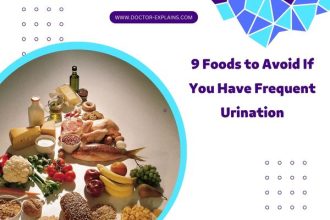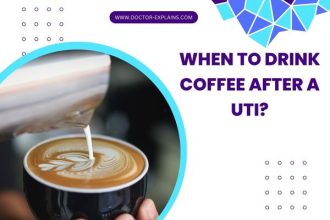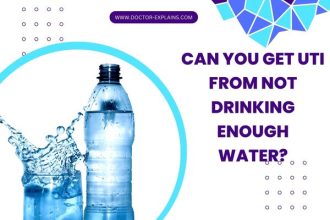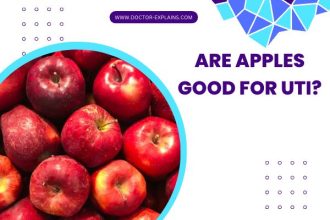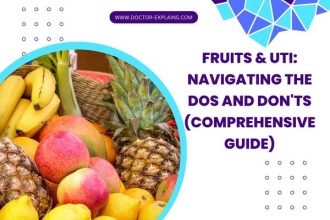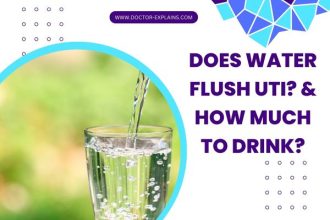The Short Answer
Certain foods and drinks can increase your need to urinate at night, disrupting your sleep. These include diuretics like coffee and tea, high-salt foods, bladder irritants like citrus fruits, foods with high water content, and high-protein foods.
Bullet Summary
- Diuretics: These substances increase urine production, leading to more frequent urination.
- High-salt foods: Consuming salty foods can lead to increased thirst, which in turn leads to increased fluid intake and more frequent urination.
- Bladder irritants: Certain foods can cause inflammation in the bladder, leading to increased urination.
- High water content foods: Consuming foods with high water content can naturally increase urine production.
- High-protein foods: Consuming large amounts of protein can lead to increased urine production as the body works to remove excess nitrogen waste.

Why Do You Pee at Night?
Nocturia, the need to urinate during the night, can be influenced by various factors.
One of the primary factors is the consumption of certain foods and drinks. These substances can either increase urine production or irritate the bladder, leading to an increased frequency of urination.
Understanding the types of foods and drinks that can cause nocturia can help you make dietary changes to reduce the frequency of nighttime urination.
According to this study, peeing more at night happens by one or more of the mechanisms in the below table:
| Cause of Nocturia | Key Factors |
|---|---|
| Nocturnal Polyuria | High nighttime urine production is influenced by factors like caffeine, alcohol, heart failure, sleep apnea, diuretics, and high salt intake. |
| Global Polyuria | Continuous high urine production throughout the day, often due to increased fluid intake, hypercalcemia, drug effects, diabetes mellitus, or diabetes insipidus. |
| Bladder Storage Problems | Frequent small-volume voidings, often due to factors like caffeine, alcohol, bladder calculi, prostate enlargement, urinary infections, and bladder capacity reduction from surgery. |
| Sleep Disorders | Insomnia and sleep apnea can lead to nocturia, especially if patients struggle to return to sleep after waking or complain of morning fatigue. |
| Other Causes | Peripheral edema, heart failure, high sodium intake, excessive fluid intake before bed, obesity, hypertension, liver failure, depression, Parkinson’s disease, and normal pregnancy. |
Learn More about the causes of nocturia (peeing at night).
Foods That Make You Pee at Night
1. Foods & Drinks with Diuretic Effects
Diuretics are substances that promote the removal of salt and water from the body, thereby increasing urine production (reference). Common examples of diuretics include:
- Coffee: Known for its caffeine content, coffee is a natural diuretic that can increase urine production.
- Tea: Similar to coffee, tea contains caffeine that can increase urination.
- Alcohol: Alcohol is a diuretic that can lead to increased urination.
- Carbonated drinks: These drinks often contain caffeine and other substances that can act as diuretics.
- Certain medications: Some medications, such as blood pressure drugs, have diuretic effects.
Consuming these substances, especially in the evening, can increase your need to urinate at night.
2. High-Salt Foods (Indirectly by Causing Thirst Sensation)
Foods high in salt can increase your thirst, leading to increased fluid intake and more frequent urination (reference). Examples of high-salt foods include:
- Processed meats: Foods like ham, bacon, and sausage often contain high amounts of salt.
- Canned soups and vegetables: These foods are often high in salt to enhance flavor and preserve the food.
- Fast food: Fast food items are typically high in salt, which can increase thirst.
- Salty snacks: Snacks like chips and pretzels often contain high amounts of salt.
3. Bladder Irritant Foods
Certain foods can irritate the bladder, leading to increased urination (reference). These include:
- Citrus fruits: Fruits like oranges and grapefruits can irritate the bladder.
- Tomatoes: Tomatoes and tomato-based products can irritate the bladder.
- Spicy foods: Foods with a lot of spice can irritate the bladder.
- Dairy products: Some people find that dairy products irritate their bladder.
- Artificial sweeteners: These can irritate the bladder in some individuals.
4. Foods with High Water Content
Foods with high water content can naturally increase urine production due to their high fluid content. Consuming these foods in excess, especially close to bedtime, can increase the need to urinate at night. Examples of such foods include:
- Watermelon: This fruit is over 90% water, which can lead to increased urination.
- Cucumbers: Cucumbers are also high in water content, leading to increased urine production.
- Oranges: Oranges, like many citrus fruits, have a high water content.
- Lettuce: Lettuce and other leafy greens are high in water content, which can increase urination.
5. High-Protein Foods
High-protein foods can increase urine production as the body works to remove excess nitrogen waste produced during protein metabolism. Foods high in protein include:
- Meat: All types of meat, including beef, chicken, and pork, are high in protein.
- Poultry: Chicken and turkey are high in protein and can increase urine production.
- Fish: Fish is another high-protein food that can increase urination.
- Dairy products: Foods like milk, cheese, and yogurt are protein-rich.
Tips to Pee Less at Night
To reduce the need to urinate at night, consider implementing the following tips:
- Limit fluid intake in the evening: Try to reduce your fluid intake within two hours of bedtime to reduce the need to urinate at night.
- Avoid diuretics and bladder irritants: Try to avoid consuming diuretics and bladder irritants, especially in the evening.
- Limit high-salt and high-protein foods: These types of foods can increase thirst and urine production, respectively. Try to limit your consumption of these foods, especially in the evening.
- If you are going to eat one of the above foods, then the amount matter. For example, eating a small piece of watermelon is not going to make you pee more at night as eating a large portion.
Dietary Considerations in Specific Diseases
Certain health conditions, such as heart disease, diabetes, and urinary tract infections, can increase the need to urinate at night. If you have a chronic condition, it’s important to manage your diet and fluid intake according to your healthcare provider’s recommendations. This may include limiting certain foods and drinks that can exacerbate your symptoms.
In conclusion, while certain foods and drinks can increase the need to urinate at night, simple dietary changes and habits can help reduce nocturia. If nocturia persists or is accompanied by other symptoms, it’s important to seek medical advice as it could indicate an underlying health condition. By understanding the types of foods and drinks that can cause nocturia, you can make informed dietary choices to improve your sleep quality.
